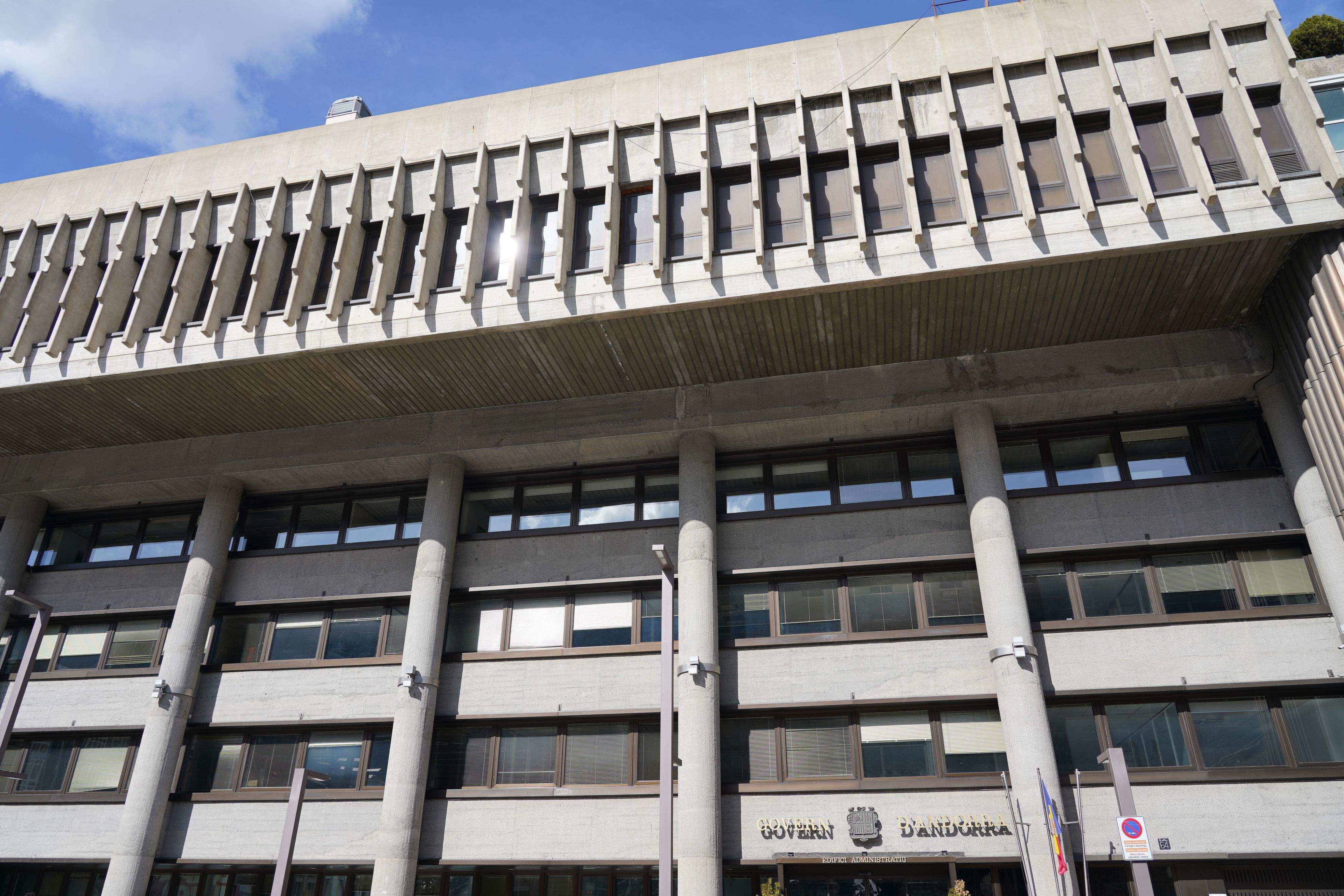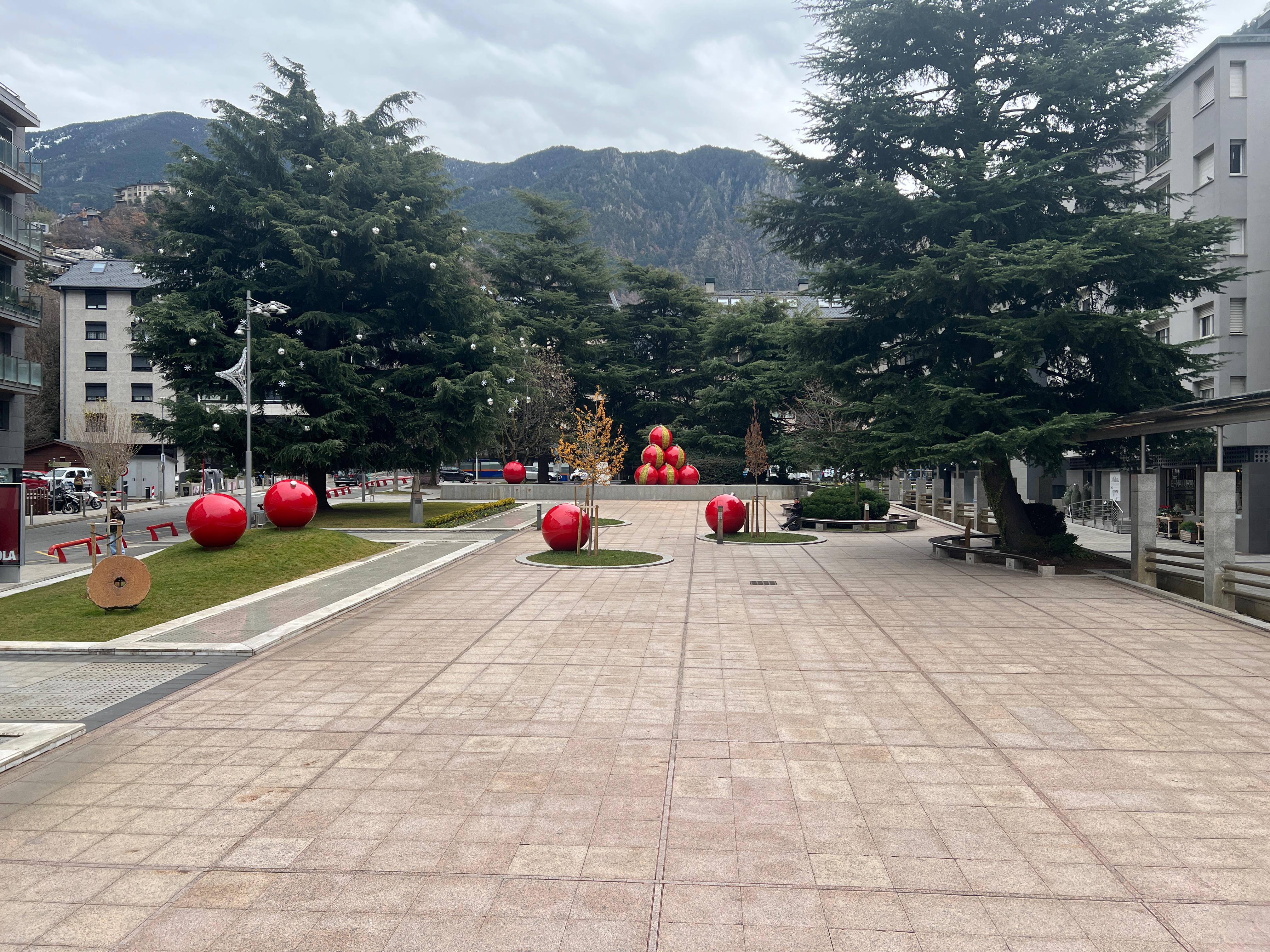Yo.
El buen hombre que aparece en la foto es Panicos Demetriades, el antiguo Gobernador del Banco Central de Chipre, y lo que dice en sus declaraciones no deja de ser, curiosamente, tremendamente paralelo a lo acontecido con el Grupo BPA.
El 26 de marzo de 2.105, apenas 16 días del infame día 10, escribí lo siguiente en el foro del JO RECOLZO ALS TREBALLADORS I AFECTATS DE BPA: "Sabemos el cómo, el qué y el cuándo. Pronto sabremos el cuánto. Tardaremos un poco más, pero acabaremos sabiendo el porqué". "Lo que no creo es en una serie de casualidades continuadas, ni me gusta que me quieran hacer comulgar con "ruedas de molino". Si quieres comentamos, y verás porqué lo digo...".
El 14 de junio, en el mismo foro, añadía un poco más de información: "Tres entidades totalmente sanas y solventes, hasta el "INFAME" día 10 de marzo. 600 profesionales. 600 familias. 30.000 clientes. 95 días después, no hay delitos. No hay culpables. No hay nada, absolutamente nada que no estuviera o estuviese judicializado. Pero el grupo BPA está en la UVI. La puta envidia de unos cuantos "mindundis". La mediocridad de unos y otros. Los "tontos útiles necesarios", en funciones o no. El no saber hacer, a partir de 26 de agosto de 2014, del que ahora se desplaza a la calle Serrano & Cia. La ausencia de una "oposición" como dictan los cánones más básicos. La necedad de casi todos. La estupidez de todos. El comportamiento borreguil y de cuasi de vasallaje de los adoctrinados patriotas. El escarnio y ensañamiento al que han sido sometidos propiedad, empleados y clientes, visto lo visto, innecesaria e injustamente. He escrito a Jenni suplicando que escriba una nota contra todos los "meapilas" que han abocado a BPA en particular y al País en general, a esta desgraciada situación".
El 21 de julio sin todavía saber casi nada, me refería en estos términos a la situación: "El gran pecado de BPA ha sido, y es, ser de la familia Cierco. Cuando todos estos, mezcla de "complejo de inferioridad-envidia-xenofobia-miseria secular acumulada en su ADN-bajeza de espíritu-delirios de grandeza-alucinaciones propias de virreyes de reinos de taifas-patentes de corso-etc...", han tenido la oportunidad de tirarse a su cuello, no lo han dudado ni un momento. El problema es que cegados en su particular cruzada de "sang i fetge", no han mesurado suficiente ni la grandeza de sus enemigos, ni las consecuencias colaterales que su temeraria decisión ha provocado en el país. Sigo insistiendo en lo dicho el pasado 26 de marzo: "En mi modesto entender, han convertido un posible caso de blanqueo, que señalaba a 3 personas, y que era controlable por la policía, la fiscalía y la justicia, en un problema financiero de gran envergadura. Saludos".
Que las casualidades a estas alturas no existen, se estudia en primero de párvulos. Que la mentira tiene las patas muy cortas, te lo enseñan incluso antes de ir a la guarderia. Y que la verdad es tremendamente tozuda y perseverante, es de todos conocido. Al final lo elemental es básico. Las primeras intuiciones son las buenas. Y que a los malos siempre se les coge, es tan sencillo como preguntarse a quién, o a quiénes, favorecen los acontecimientos. Como decía Abraham Lincoln: "se puede engañar a algunos todo el tiempo y a todos algún tiempo. Pero no se puede engañar a todos todo el tiempo".
Aquí les dejo las declaraciones del Sr. Demetriades y los links para que todos ustedes puedan sacar sus propias conclusiones, y que nadie me pueda acusar de manejar información privilegiada ni ninguna chorrada de esas que se les ocurren. Yo ya saqué las mías hace mucho tiempo. Para los ilustrados que me acusan de escribir en castellano, se las pongo en el idioma original.
Former CBC governor Demetriades sees FBME as victim of domestic politics
By Stelios Orphanides
Former Central Bank of Cyprus’s governor Panicos Demetriades said that he was not aware of FBME Bank, the Tanzanian lender which had its licence in Cyprus revoked, being engaged in money laundering and is surprised over related allegations the bank faces which he considers a by-product of domestic “toxic politics” fuelled by the rivalry of larger banks.
“Smaller banks such as FBME, as well as being a source of healthy competition, are inadvertently a threat to the supremacy of larger banks,” Demetriades, an academic who served as governor during the banking crisis of 2013, said in a letter to the U.S. treasury’s Financial Crime Enforcement Network, widely known as FinCEN. “As such, they tend to attract interest by politicians, often for the wrong reasons”.
In 2014, the Central Bank of Cyprus placed FBME under administration, citing a damning report by FinCEN which deemed the bank a “primary money laundering concern” and having links to the Lebanese terror militia Hezbollah. FBME denies the allegation and launched a legal battle against the Central Bank of Cyprus, which revoked the licence of its Cyprus branch last December.
“During my tenure as governor, the AML (anti-money laundering) capabilities of the Central Bank of Cyprus were strengthened considerably, in line with the obligations of the Republic (of Cyprus) under the memorandum of understanding with the European Commission and the International Monetary Fund,” he said. “At no time was I ever presented with any evidence to suggest that any bank in Cyprus engaged in money laundering during that period”.
Demetriades, who resigned as governor in April 2014, said that immediately after assuming office in May 2012, he was informed of the Tanzanian bank’s “informal” interest to convert its Cyprus branch to its headquarters, which was followed by a formal application “which the Central Bank of Cyprus was prepared to consider in the interest of increased competition in the banking sector”.
The former governor said that with many activities in Cyprus, including banking, being an extension of party politics, “certain politicians”, whom he did not name, “were uncomfortable with FBME’s presence in Cyprus” and may have been “overprotective of the biggest domestic banks, although it is those banks’ reckless actions that fuelled an unsustainable property boom and created large contingent liabilities for the sovereign through excessive exposures to Greece and Eastern Europe, including Russia”.
He added that prior to his appointment to the helm of the CBC by communist former president Demetris Christofias, FBME invested “substantial funds” into Cypriot government securities which helped Cyprus “avoid a disorderly default” after it got shut out of markets in May 2011 and during the negotiations with international creditors, which started in June 2012.
Demetriades was the target of harsh criticism over his role as central bank governor during negotiations with creditors, concluded in March 2013, for allowing failed lender Cyprus Popular Bank, also known as Laiki, to tap over €10bn in emergency liquidity from the European Central Bank, even after the bank was considered insolvent. Under Cyprus’s bailout terms, depositors at Laiki lost all their uninsured deposits while those at Bank of Cyprus saw almost half of their deposits in excess of €100,000 converted into equity as part of the bank’s recapitalisation.
In September 2012, after Christofias ignored pleas by representatives of the troika of the European Commission, the European Central Bank, and the International Monetary Fund, to speed up the conclusion of bailout negotiations, reports in international press linked Cyprus to money-laundering. A month later, the Central Bank of Cyprus announced its intention to formally consider FBME’s application for a banking licence as a Cypriot bank, which would allow it to operate in all other European Union member states.
“It is not inconceivable, indeed it is likely, that politicians who were in opposition at the time, interpreted the action as a lifeline to the previous government,” he said. “Therefore, despite FBME continuing to finance the sovereign even after the change in government, certain politicians of the ruling party may have continued to perceive FBME as a hostile bank”.
“I find it extremely difficult to understand the rationale of the Central Bank of Cyprus’s actions in relation to FBME,” he said. “I suspect that the diminished independence of the Central Bank and the toxic politics alluded to above may well have contaminated the decision-making process of the Central Bank of Cyprus, pushing it away from strict banking considerations and into the realm of party and interest group politics. I am also concerned that FinCEN itself may have received misleading or inaccurate information about FBME from Cypriot sources, since a small bank like FBME may be a convenient scapegoat”.
http://cyprusbusinessmail.com/?p=21575
«Δικηγόρος» της FBME έγινε ο Πανίκος Δημητριάδης
Επιστολή στην αμερικανική υπηρεσία FinCEN, η οποία ασχολείται με ύποπτες διαδρομές χρημάτων και ξέπλυμα βρώμικου χρήματος, απέστειλε ο τέως διοικητής της Κεντρικής Τράπεζας, Πανίκος Δημητριάδης. Στην επιστολή του ο Πανίκος Δημητριάδης καταφέρεται εναντίον του πολιτικού συστήματος στην Κύπρο, αφήνει υπόνοιες για διαπλεκόμενα συμφέροντα, για αθέμιτο ανταγωνισμό από τις τράπεζες ενώ δεν παραλείπει να αναφερθεί στην επιρροή των κομμάτων στα ΜΜΕ αλλά και στον ισχυρό ρόλο που είχε η Εκκλησία της Κύπρου ως μεγαλομέτοχος σε τράπεζες.
Πιο ειδικά αναφέρεται ότι στην επιστολή του Πανίκου Δημητριάδη προς τη FinCEN, αρχικά γίνεται αναφορά στην διετία κατά την οποία ήταν διοικητής της Κεντρικής (Μάιος 2012, Απρίλιος 2014) και ότι παρά τις οικονομικές δυσκολίες της Κύπρου έγιναν όλες οι κινήσεις οι οποίες υπαγορεύθηκαν από το Μνημόνιο που συνομολόγησε η χώρα με τους δανειστές της.
Έκπληξη για τις κατηγορίες
Παράλληλα, ο κ. Δημητριάδης εκφράζει την έκπληξή του για τις πληροφορίες αναφορικά με ύποπτους λογαριασμούς στην FBME που οδήγησαν σε κλείσιμό της. Ειδικότερα ο κ. Δημητριάδης αναφέρει: «Υπάρχει οποιοδήποτε βάσιμο ενοχοποιητικό στοιχείο; Ή οι κατηγορίες βασίζονται σε φήμες από ανταγωνιστικές με την FBME τράπεζες και υποστηρικτές τους από τον πολιτικό χώρο;».
Παράλληλα, ο κ. Δημητριάδης αναφέρει ότι τον Μάιο του 2012 η FBME υπέβαλε επίσημη αίτηση στην Κεντρική προκειμένου να μετατρέψει το κυπριακό υποκατάστημά της, σε κεντρική, μητρική εταιρεία των εργασιών της. «Η Κεντρική εξέτασε και έκανε τις απαραίτητες διαδικασίες για αδειοδότηση, θεωρώντας ότι η αύξηση του ανταγωνισμού θα ήταν προς όφελος της αγοράς, κάτω από συγκεκριμένες προϋποθέσεις βέβαια».
Ενέργειες καθορίζονται από πολιτικά κόμματα
Μάλιστα, απευθυνόμενος προς την FinCEN, ο Πανίκος Δημητριάδης τονίζει ότι πολλές ενέργειες στην Κύπρο καθορίζονται από πολιτικά κόμματα, τα οποία λειτουργούν βάσει συγκεκριμένων συμφερόντων. «Δυστυχώς οι τράπεζες δεν αποτελούν εξαίρεση αυτής της κατάστασης. Μάλιστα, οι μεγάλες τράπεζες ασκούν επιρροή μέσω των ΜΜΕ αλλά και των πολιτικών τους διασυνδέσεων, συμπεριλαμβανομένων και των μεγαλομετόχων τους (όπως στο πρόσφατο παρελθόν και η Εκκλησία της Κύπρου, η οποία διατηρεί ισχυρές σχέσεις με την πολιτεία).
Στη συνέχεια ο κ. Δημητριάδης τονίζει ότι εξωθήθηκε σε παραίτηση από το «τοξικό πολιτικό σύστημα» όπως το χαρακτηρίζει. «Κατά τη θητεία μου ως Κεντρικός Τραπεζίτης, υπήρχε η θέση στην κοινή γνώμη ότι συγκεκριμένοι πολιτικοί κύκλοι δεν ένιωθαν ευχάριστα με την παρουσία της FBME στην Κύπρο» συμπληρώνει ο Πανίκος Δημητριάδης. Εξάλλου, σε δηκτικό τόνο ο κ. Δημητριάδης συμπληρώνει: «Δεν προκαλεί άλλωστε έκπληξη ότι οι εν λόγω πολιτικοί κύκλοι είναι αυτοί που προστάτευαν τις μεγάλες τράπεζες της Κύπρου, οι οποίες ευθύνονται για τη φούσκα των ακινήτων, τη μεγάλη πιστωτική επέκταση και την αλόγιστη εξάπλωση σε αγορές όπως της Ελλάδας και της ανατολικής Ευρώπης, συμπεριλαμβανομένης και της Ρωσίας».
Παράλληλα, ο Πανίκος Δημητριάδης αναφέρει ότι μικρότερες τράπεζες, όπως η FBME, που λειτουργούν υπέρ του υγιούς ανταγωνισμού αντιμετωπίζονται ως απειλή από τις κυρίαρχες, μεγάλες τράπεζες. Μάλιστα, ο κ. Δημητριάδης αναφέρει ότι και πριν τον διορισμό του η FBME επένδυσε σημαντικά κεφάλαια σε κρατικά ομόλογα, επένδυση η οποία βοήθησε τη Δημοκρατία να αποφύγει τη χρεοκοπία. «Είναι πάντως ξεκάθαρο ότι πολιτικοί της τότε αντιπολίτευσης, ερμήνευσαν τη στήριξη της FBME ως οικονομική ανάσα για την προηγούμενη κυβέρνηση (σ.σ. Χριστόφια). «Παρόλα αυτά η FBME συνέχισε την πολιτική της ακόμη και όταν άλλαξε η κυβέρνηση. Ωστόσο, ορισμένοι πολιτικοί και κυρίως από το κυβερνόν κόμμα συνέχισαν να θεωρούν την τράπεζα ως εχθρική προς αυτούς».
Δεν κατανοώ τους λόγους…
Καταληκτικά ο Πανίκος Δημητριάδης αναφέρει στην επιστολή του: «Έχοντας φύγει από την Κύπρο τον Απρίλιο του 2014 και συνεχίζοντας την ακαδημαϊκή μου πορεία, έχοντας μηδενική εμπλοκή με όσα συμβαίνουν στην πολιτική της χώρας αλλά και στην Κεντρική, δυσκολεύομαι να κατανοήσω τις ενέργειες της Κεντρικής Τράπεζας αναφορικά με την περίπτωση της FBME. Είμαι πεπεισμένος ότι η μειωμένη, πλέον, ανεξαρτησία της Κεντρικής και η ¨τοξική πολιτική¨ στη χώρα έχουν καθορίσει τις αποφάσεις αναφορικά με την FBME. Παράλληλα, φοβούμαι ότι η FinCEN έχει λάβει παραπλανητικά και ανακριβή στοιχεία σε σχέση με την FBEM από πηγές στην Κύπρο, αφού μια μικρή τράπεζα όπως η FBME εύκολα μπορούσε να αποτελέσει τον αποδιοπομπαίο τράγο».
http://www.reporter.com.cy/politics/article/34288/dikigros-tis-fbme-egne-o-panikos-dimitriadis#.VriKwApXb0g.twitter
Intenten ser felices.







Comentaris